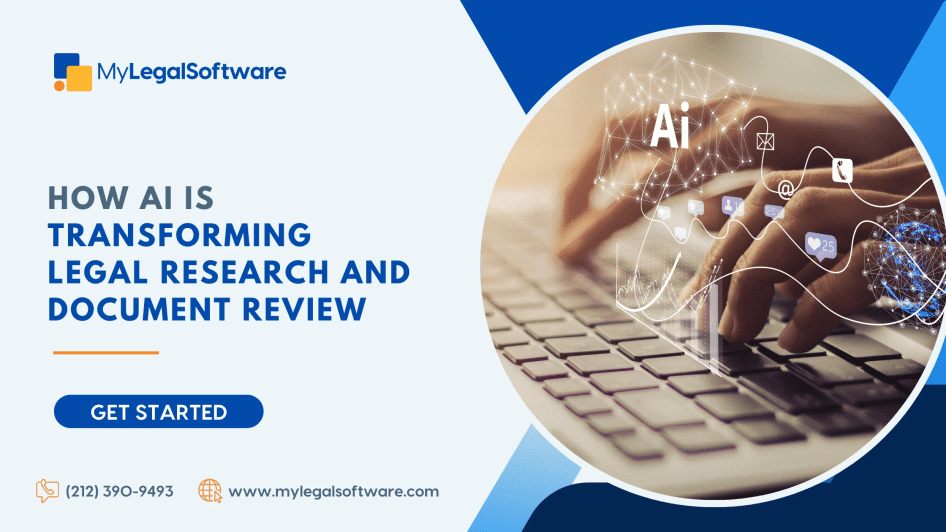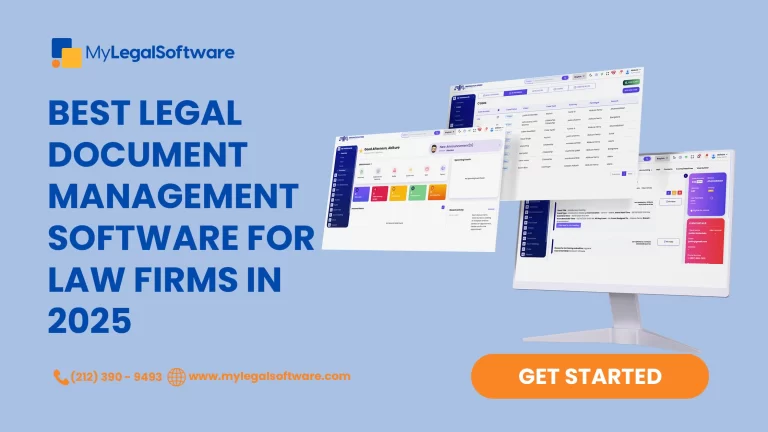How AI is Transforming Legal Research and Document Review
The legal world is no stranger to long hours, tedious research, and stacks of documents that seem to grow taller by the minute. If you’re a lawyer or legal professional, this probably sounds all too familiar. But what if there was a way to breeze through time-consuming tasks like legal research or document review, leaving you more time to focus on the things that matter—like crafting compelling arguments or, dare we say, leaving the office before sunset?
Thanks to artificial intelligence in law, this dream is becoming a reality. Nowadays, AI is more than just a fancy word; it’s transforming how legal professionals work. From document review automation solutions to machine learning for legal professionals, technology is turning what used to be days of work into mere hours.
Let’s dive into how AI is reshaping the legal landscape.
The Backbone of Legal Work: Research and Document Review
First, let’s acknowledge the elephant in the room: legal research and document review are necessary evils. Whether it’s combing through contracts, hunting for case law, or verifying compliance, these tasks are the backbone of legal work.
But they’re also exhausting, not to mention prone to human error. Miss one key clause in a contract or overlook a landmark case, and the consequences can be serious. It’s no wonder so many legal professionals find themselves glued to their desks late into the night.
That’s where AI comes in—not to replace you, but to help you work smarter, not harder.
What Is Artificial Intelligence in Law?
If the phrase “artificial intelligence in law” conjures up images of robots in suits, let’s clear that up. AI in law refers to technology that can perform tasks traditionally requiring human intelligence, like analyzing documents, predicting case outcomes, and even conducting legal research.
In simpler terms, think of AI as your supercharged legal assistant—one that doesn’t get tired, doesn’t miss details, and works at lightning speed.
The Magic of Document Review Automation Solutions
Let’s talk about one of AI’s most transformative innovations: document review automation solutions.
Imagine that your client drops off a mountain of contracts and asks you to review them for specific clauses or compliance issues. Traditionally, you’d spend days painstakingly combing through each page. With automation tools, you can upload those contracts and let AI do the heavy lifting in a fraction of the time.
How Does It Work?
AI-powered tools use natural language processing (NLP)—essentially, the ability for machines to “read” and understand human language. These tools can:
- Identify important clauses, like renewal terms or liability limitations.
- Flag inconsistencies or risks.
- Sort through discovery documents to find the evidence you need.
Why It’s a Game-Changer
- Saves Time: Tasks that used to take days can now be done in hours.
- Minimizes Errors: AI doesn’t get fatigued, so the chances of overlooking key details are slim.
- Reduces Costs: Clients benefit from reduced billable hours, making your services more affordable—and competitive.
It’s like having an extra set of eyes (or thousands) on every document, ensuring nothing slips through the cracks.
Machine Learning for Legal Professionals: The Next Level
AI isn’t just about speed and automation—it’s also about learning. This brings us to another important topic—machine learning for legal professionals.
Machine learning is a type of AI that doesn’t just perform tasks—it gets better at them over time. As it processes more data, it “learns” patterns, improving its ability to analyze information and predict outcomes.
Real-Life Applications of Machine Learning in Law
- Predicting Case Outcomes: Imagine knowing the likelihood of winning a case based on similar past rulings. Machine learning can provide insights that help you craft a stronger strategy.
- Streamlining E-Discovery: With AI, you can sift through thousands of documents in seconds to find the ones that matter most.
- Better Legal Research: Tools like Westlaw Edge and LexisNexis use machine learning to deliver faster, more precise research results.
And no, this doesn’t mean AI will replace lawyers. Think of it as a partner that handles the grunt work so you can focus on the big-picture strategy and client relationships that only humans can deliver.
Making Legal Research Faster and Smarter
Legal research is notoriously time-consuming. It involves diving deep into statutes, case law, and legal journals—and praying you didn’t miss something crucial. AI is taking this process from tedious to streamlined.
What AI Brings to Legal Research
- Speed: AI can analyze thousands of cases in seconds, identifying the most relevant ones.
- Accuracy: AI understands the context, not just keywords, so you get better results.
- Tailored Results: Many tools can be customized to focus on your specific area of law.
Real-World Impact
For many lawyers, AI tools have cut research time in half. That means fewer late nights at the office and more time to focus on what really matters: your clients and your cases.
Challenges of Adopting AI in Law
Integrating AI into legal practice isn’t without its challenges. While 35% of law firms now use AI tools to streamline their operations, according to the American Bar Association, many legal professionals remain cautious. Concerns about data privacy, the cost of implementation, and a lack of understanding about AI’s capabilities are common hurdles that firms must overcome to fully embrace this transformative technology. Others include:
The Learning Curve
Truth be told, not every lawyer is a tech whiz. Introducing AI tools requires training and a willingness to adapt. But think of it this way—once you learn to use the technology, the time and energy you’ll save will far outweigh the initial effort.
Cost Concerns
Advanced AI solutions don’t always come cheap. Small firms or solo practitioners may worry about the upfront investment. However, the long-term savings in time and efficiency often make AI tools well worth the cost. Plus, many platforms offer scalable pricing to suit different needs.
Ethical and Privacy Concerns
Legal work involves sensitive client data, so it’s understandable to feel cautious about using AI. Ensuring that the tools you adopt comply with privacy laws and maintain confidentiality is key. Trusted platforms use secure, encrypted systems to protect your information.
Why AI Won’t Replace Lawyers
A common fear when discussing AI is, “Will it take my job?” The answer is a resounding no. AI is here to complement your expertise, not replace it.
While AI excels at processing data and spotting patterns, it can’t replicate human judgment, empathy, or creativity—qualities that are central to being a great lawyer. Your role in interpreting findings, building client relationships, and making strategic decisions is irreplaceable.
AI doesn’t replace lawyers; it empowers them to focus on higher-value work.
What the Future Holds for AI in Legal Practice
AI is still evolving, and its applications in law are just beginning to scratch the surface. Here are a few trends to watch:
- More Predictive Analytics: Imagine tools that not only help you prepare for a case but also predict how opposing counsel might act.
- Custom AI Tools for Firms: As AI becomes more affordable, smaller firms will have access to tailored solutions that meet their unique needs.
- Greater Accessibility: AI will make legal services more affordable for clients, bridging the justice gap for underserved populations.
The legal profession may never look the same, and that’s a good thing.
Conclusion
AI is already transforming how legal professionals handle research and document review, and the benefits are clear: greater efficiency, reduced costs, and improved accuracy. Whether you’re interested in document review automation solutions or exploring machine learning for legal professionals, now is the time to embrace the technology reshaping your industry.
If you’re ready to take the leap, check out MyLegalSoftware.com. Their tools are designed to simplify your workflow and bring the power of AI directly to your legal practice. Don’t just keep up with the future of law—lead it.
Want to learn how to navigate regulatory changes with legal tech? Go here.
FAQs About AI in Legal Research and Document Review
- Will AI replace lawyers?
Not at all. AI is a tool to assist lawyers, not replace them. It handles repetitive tasks like document review and research, allowing lawyers to focus on strategic and client-facing work.
- How secure are AI tools for legal work?
Most reputable AI platforms are designed with top-tier encryption and compliance measures to protect client data. Always ensure the tool you choose meets your security standards.
- What’s the cost of adopting AI in a law firm?
Costs vary depending on the tool and firm size, but many platforms offer flexible pricing. While there may be an upfront investment, the time saved often translates into significant long-term savings.








